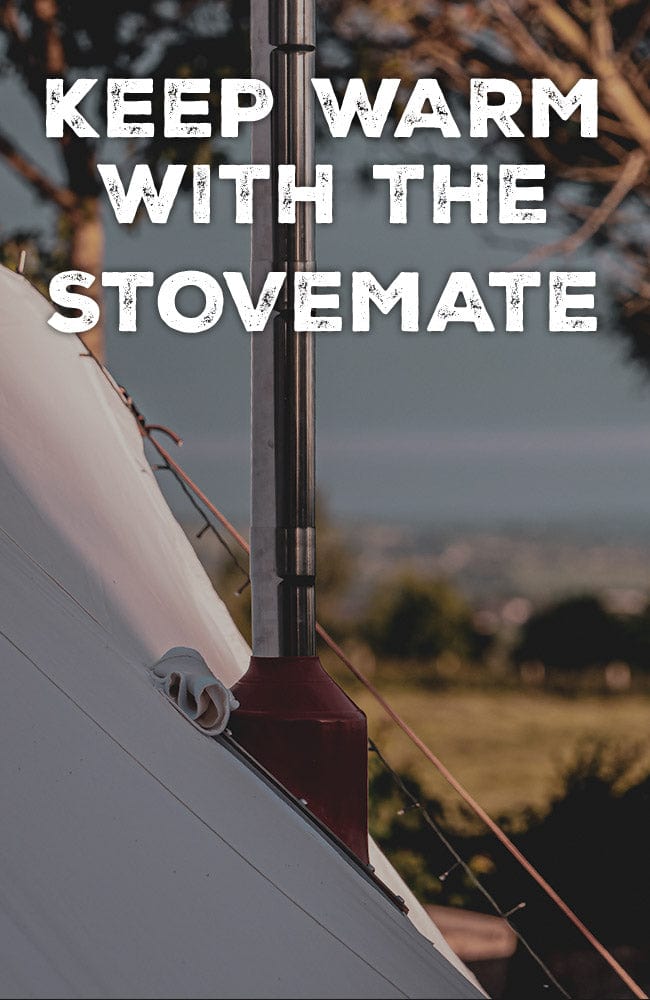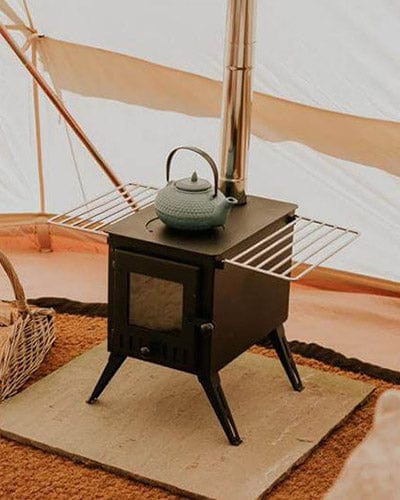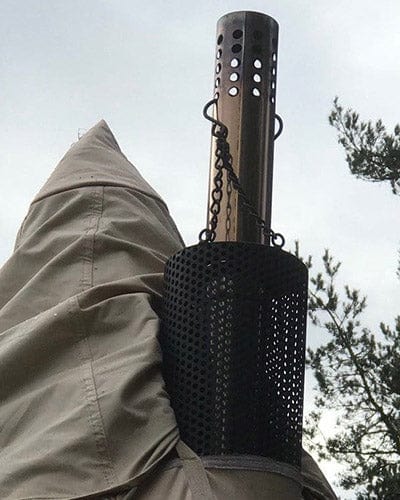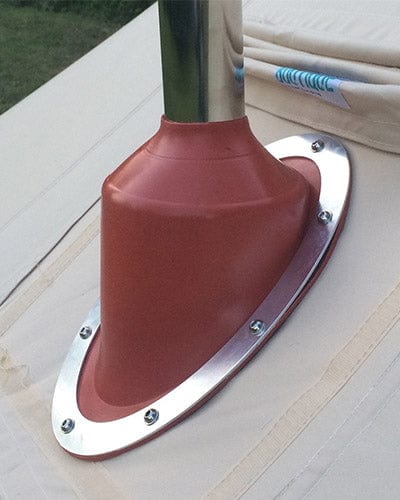Blog
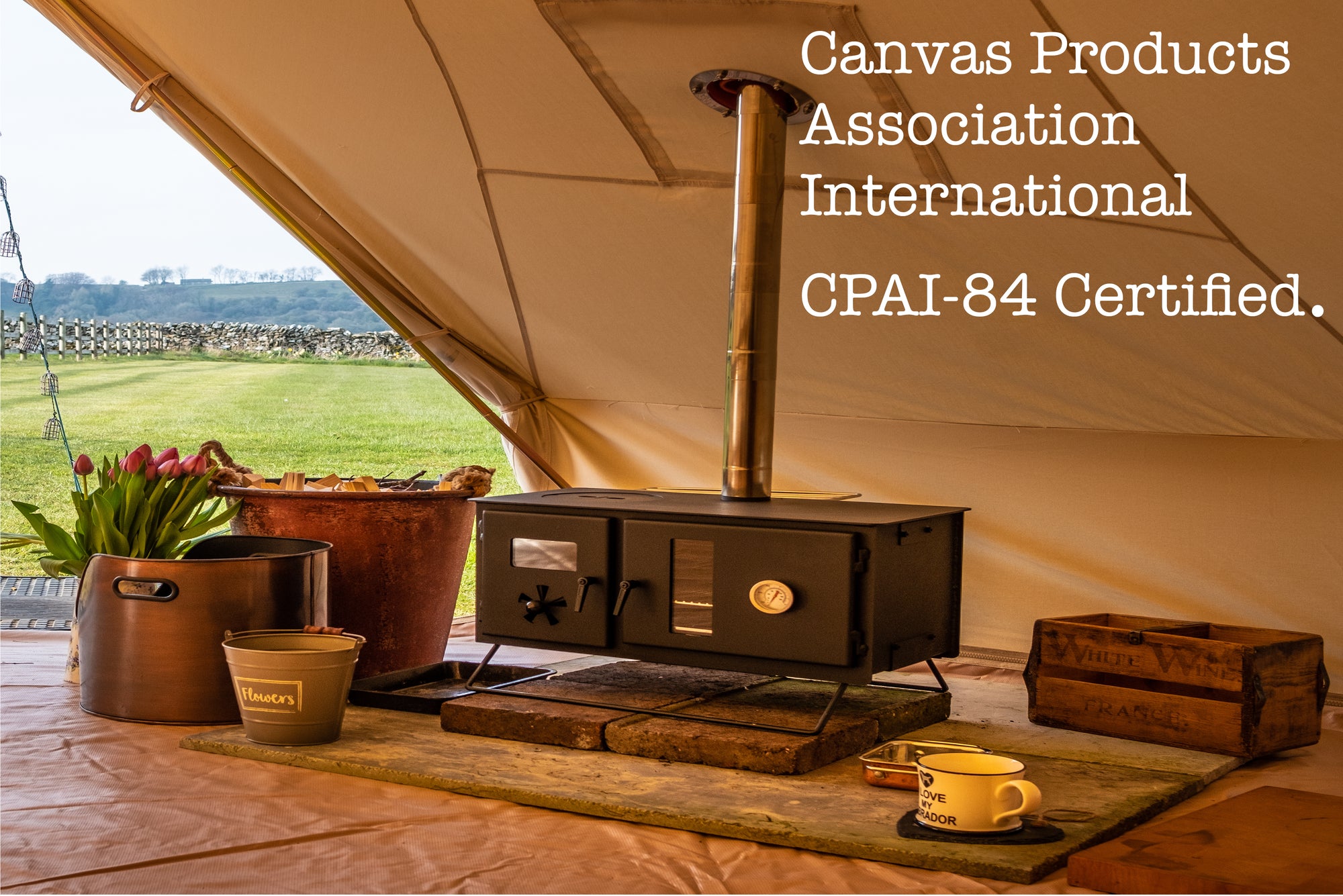
bell tent
Choosing a Fireproof or Fire Retardant Tent
Many campers will enjoy the peace of mind provided by knowing their tent has been fireproofed. As one of the UK's first providers of Fireproofed bell tents we've developed our range to ensure our Fireproofed tents offer the same benefits as our regular range
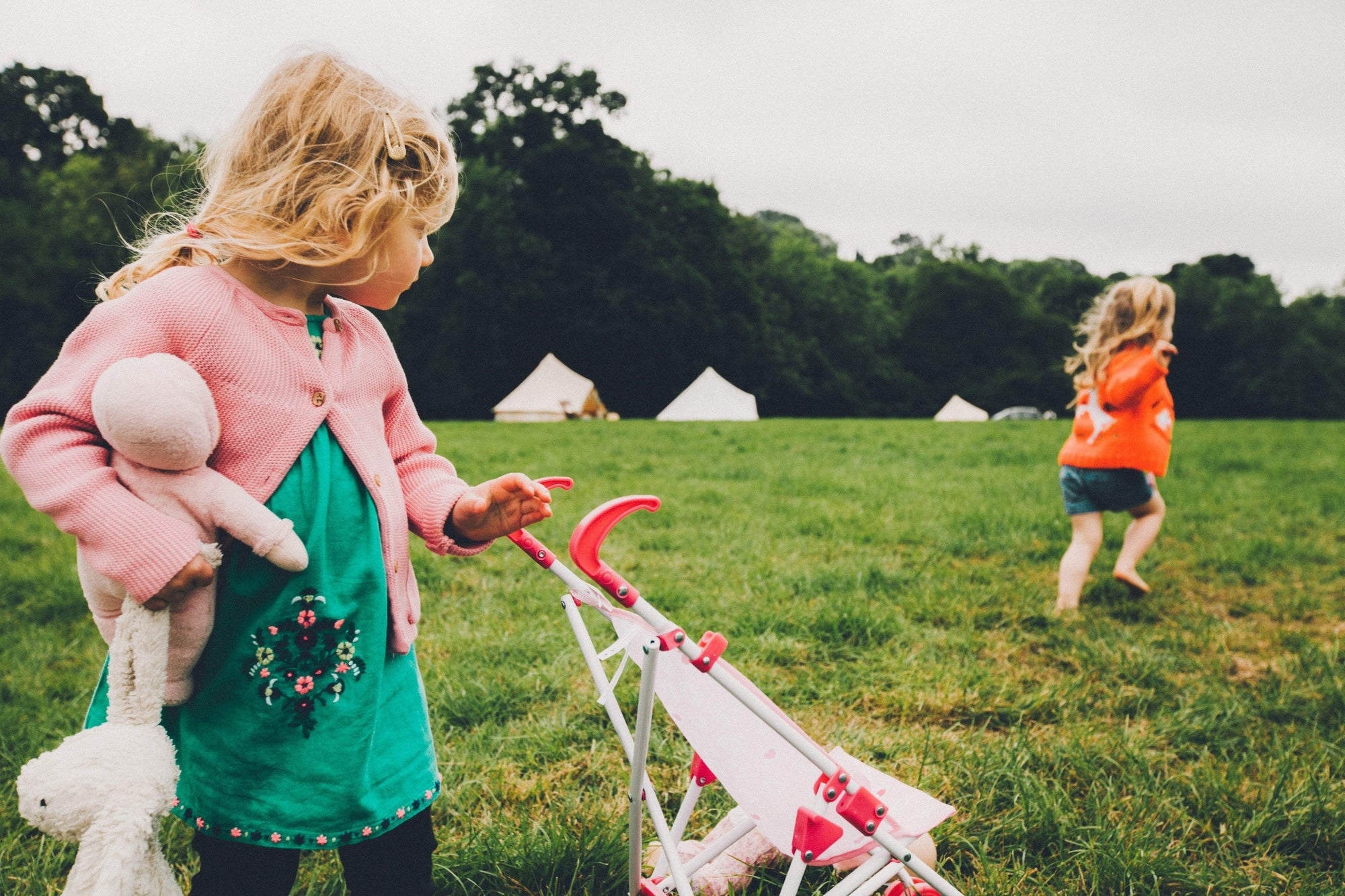
bell tent
Camping with Young Children Made Easy (ier!)
Camping with Young Children Made Easy (ier!)
Make Camping With Your Kids So Much Easier and Fun With These Great Ideas.

bell tent
Pitches You'll Love That Are Near The Beach
We love a weekend away camping near the beach! Sand between toes; cool waves splashing on sun-warmed skin; Sea breezes blowing away the cobwebs… Camping on the coast brings a feeling of freedom and evokes memories of fun days out as children. We all enjoy being beside the seaside, whether to swim, explore rockpools or snorkel; walk, paddle or surf; or simply to enjoy listening to the ocean. Here’s are 20 great Coastal locations from coolcamping.co.uk to help you get your beach on!

bell tent
Bell Tent Village - Create your own canvas glampsite.
Bell Tent Village - Create your own canvas glampsite.
We found a great article about creating your very own bell tent village in Farmers weekly. We thought we would share with our readers.
"Glamping has grown hugely in popularity over the past few years and offers an additional opportunity for landowners and farmers to diversify their income.
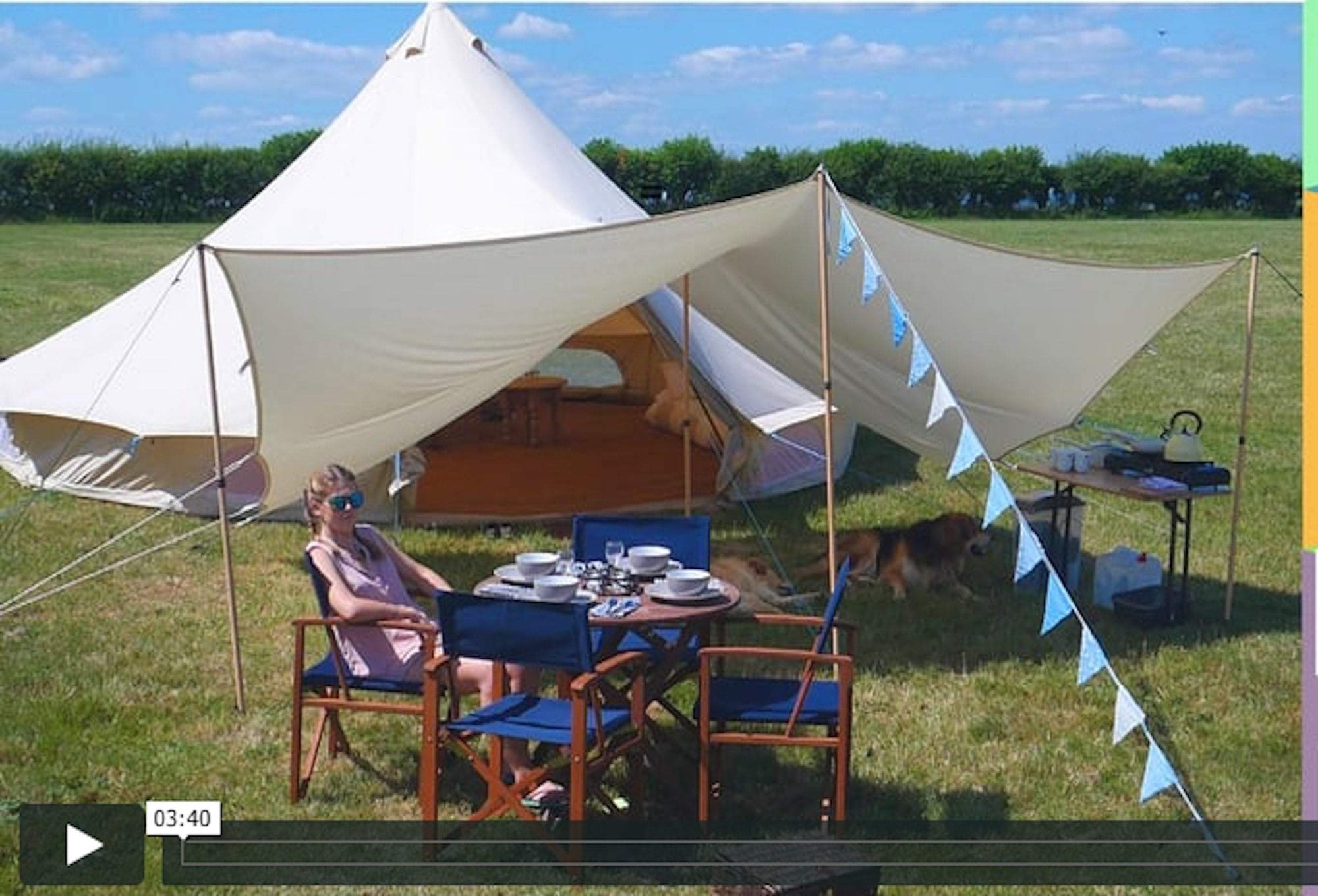
bell tent
Bell Tent Boutique - Unboxing & Initial Set Up
A quick unboxing and first set-up of our awesome 6 metre bell tent from Bell Tent Boutique. It's a great family run company with really friendly and knowledgable customer care and extremely high quality tents - we've already ordered a second!
glamping
Canvas Tent Care Tips | Bell Tent Boutique
Most of us spend ages selecting our canvas tent, choosing the right size and specifications to suit our glamping style. Camping trips can create memories with friends and family, and having your tent in good condition can be an integral part of the success of any trip. With some care and attention your tent will become a faithful friend.
There are a few things you can do to keep your tent in good condition and help extend its life.
Here are some simple ideas that should improve your camping trips.
1. Before You Go:
When you first receive your tent, it is advisable to practice pitching. Learning to pitch your tent correctly will help to minimise any wear and tear the tent may receive.
Before setting off on your holiday it's a good idea to pitch up in the back garden and take the time to check over your tent for signs of wear and tear. Check that all its parts are present and in good working order. It’s always better to find out you’ve lost your tent pegs or damaged a pole at home, not when you’re away.
2. Carry Spare Parts With You:
Try to pack spare parts such as pegs and guy ropes, seam tape & sealant. Any spare patches of fabric and groundsheet that you have are also useful to carry with you. With a canvas tent having a needle and thread and some duct tape in your kit is always useful. Carrying spares will mean you can repair your tent whist away and can prevent any damage from potentially getting worse.
3. Care For Your Tent’s Zips:
As zips receive regular wear and tear you need to pay special attention to their care. Brushing your tent’s zips with a clean, dry toothbrush can help to keep them running smoothly. DO NOT FORCE ZIPS! If there is a fold in the fabric caught in the zip, work to gently free it. Lubricating your zips can also be a helpful preventative measure.
4. Separate Your Pegs And Poles:
When travelling try keep tent poles and tent pegs stored separately and away from the tent in their own bags. This helps avoid poles or pegs damaging the canvas or groundsheet whilst in transit.
5. Get An Awning:
Some people choose to have an awning at the front of their tent, if you do you should try to utilise as much as possible. Items like shoes, should be left in the awning area when entering your tent and never worn inside. Soles of your shoes can bring in sharp twigs and small stones which can pierce your tent’s groundsheet.
Food left lying around inside can attract hungry little animals in search of a snack! Be aware that small animals like mice can chew through your tent’s fabric in search of food.
6. The Perfect Pitch:
Taking the time to pitch your tent properly is one of the best ways to preserve it. A well-pitched tent is more stable than one that’s poorly pitched, and taught canvas will flap less in the wind, which means there’s less chance of tent poles breaking or fabric tearing.
Poles are under great tension during pitching, ensure they are fully connected before fitting. Always use all the guylines as these contribute to the overall stability of the tent. Guylines increase the strength of the tent, particularly in bad weather. Pitching correctly also involves finding a good spot to put it up. Before you put your tent up find a pitch (away from trees which could cause damage from sap) and remove any sticks and sharp stones from the ground so they don’t pierce the groundsheet.
7. Prepare Your Tent For Packing Away:
When packing your tent away and before putting your tent into its bag, shorten all the guy lines as much as possible in order to prevent tangling.
Most importantly, remove any twigs, grass, leaves and small stones that may have made their way inside your tent before packing it away; damp grass left inside the tent can quickly create mould. Simple care like this will help you prevent wear and stop more serious damage occurring.
8. Rolling Up:
There’s some debate about whether you should stuff your tent into its bag or take the time to roll it up What is certain is that your tent should never be folded up and put away. Over time, folding your tent will cause creases in the fabric and weak spots to develop. It can also damage its waterproof coating.
If you are a ‘stuffer’ one tip is to keep your tent’s doors at the top of the bag so they goes into the bag last. Doing this will allow air trapped inside your tent to escape more easily.
9. Storing Your Tent Properly:
When you get home from a trip, take your tent out of its bag and ensure that it’s well aired and totally dry before storing it away. This will help prevent mould forming. To speed up the process, hang your tent up indoors so that air can circulate. After airing your tent and making sure its dry, It’s best to store your tent in a dry cool and well-ventilated place. If you store your tent in its bag check its thoroughly dry before doing so. We can’t say it enough – if you pack away a cotton tent when its still even slightly damp, mould will start forming immediately. Also, keep pegs in their own bag so you don’t lose them.
Admittedly, taking care of your tent can involve a little work. However, doing so will extend the life of your tent for many seasons to come.
Happy Glamping!

glamping
Tent Life | Living Under Canvas | Bell Tent Boutique
On the odd occasion when camping in the summer our thoughts have turned to the question "what is it like to live in a tent full time?" One couple took the plunge and soon found the reality was far from their romantic ideals of living mortgage free.
We love this story of a remarkable couple, Matt and Lily who went further than just thinking about it.
Article By Patrick Barkham www.theguardian.com.
"A white frost clings to the fields and the mud on the farm is frozen hard. In a secluded paddock behind the stone farmhouse stands a small bell tent, a curl of smoke rising from the metal flue poking out of the canvas. The temperature dropped to -7C the previous evening but inside the tent it is surprisingly warm, which is just as well because since the middle of January this octagonal dwelling, 5m wide and mounted on old pallets above the mud, has been the home of Lily and Matt Gibson and their nine-month-old daughter, Louise.
As unpaid bills mounted, and the couple struggled to pay £625-a-month rent for a dilapidated house, they made a drastic decision: they believed they would be better off, and happier, trying to survive in a tent. When their tenancy agreement expired on 15 January, they pitched a tent they had bought for £370, borrowed from Lily's mother, on a farm in the west country.
"The mud and rain may be depressing, but the cold is scary," admits Lily. "But we're glad we've done this, even though it is frightening sometimes thinking about our responsibility for Louise and how we must keep her warm."
The woodburning stove inside the tent is their life. Everything is focused on keeping the fire burning. Every two hours at night, Matt must get up to feed it more logs. So far, it is working. It may be freezing outside but under a single layer of canvas, the couple have created a snug and idyllic-looking – if minuscule – home. The tent smells of woodsmoke and a delicious beef and vegetable broth is bubbling on the stove.
Matt was working in retail, spending wages on an expensive commute to a nearby city, and Lily, a freelance graphic designer, had stopped work when Louise was born. "Matt wasn't getting home until 7pm and we still couldn't afford to live properly," says Lily. "We paid all our rent but we weren't ever going out. We weren't buying new clothes. We didn't even get our hair cut. We'd occasionally get a coffee with friends in the town, but we were living very frugally. There was no way we could save at all and we wanted to do something for Louise's future. We tried to be positive and we wanted her to have a happy home, but it was really quite depressing."
Then they chanced on a press cutting about Simon Dale, who built his own eco-home for £3,000. This inspired them to take the first steps in their dream of buying a plot of land and building a low-impact home on it. "For me it was also inspired by the Occupy movements across the world," adds Lily. "I don't know what they might achieve but they have shifted consciousness in some way." Previously, she assumed that "if we could not afford our rent it was because we were not budgeting properly. The Occupy movement made me see it wasn't my fault – that it was the system that was not working."
Matt and Lily began by finding a farmer, a friend of a friend, who generously allowed them to pitch the tent on his land. Matt has quit his job but the couple are not claiming unemployment or housing benefit – Matt does farm work between cutting wood for their stove. It may sound romantic but the challenges of living simply under canvas are daunting.
"A lot of people would go mad in a tent at this time of year. People could find a million and one things to burst into tears about," says Lily. This morning, she hung her one warm jumper on the stove flue to warm up for a minute, got distracted by Louise and singed the jumper. "You definitely need a sense of humour and you can't be vain – you're just going to get upset by the mud or lack of running water."
Inside the tent are nice rugs, plants and homely trinkets the couple have picked up on their travels. "It's got that nomad feel to it, which I love," says Matt. It has been a steep learning curve, however. Because the sides slope inwards there is far less space than they anticipated – no furniture can be allowed to touch the canvas or the rain will come in. They have been flooded already, and after they failed to secure the stove flue, it blew down in a gale. It is now firmly screwed in place.
To begin with, they lived off tinned food heated on the stove top. "We were sat there for three hours wondering why things wouldn't come to the boil," says Lily. Since then, she has mastered slow cooking – Turkish meatballs with rice, pot-roasted chicken with roast potatoes and even omelettes in tin foil – while Matt has learned how the type and size of log can radically alter the stove's heating power. Although he is doing less paid labour now, he says his days seems fuller. "There are not enough hours in the day now."
Washing is done with a Wonderwash, a hand-cranked machine Lily imported from the US for £80. Clothes are cleaned with six jugs of hot water and two minutes of vigorous cranking, followed by 30 seconds of cranking in cold water to rinse. As the tent is a temporary measure, they borrow the downstairs loo at the farm and pay to have an occasional shower and charge their phone. "There is more drudgery, like hand-sweeping the floor, but it is more liberating and empowering as well," says Lily. "The simpler things are, the less alienated you feel from your own life – the more in control you are."
They have had to learn to prioritise certain jobs in the precious daylight hours. After dark, they light the tent with candles. There is no television, although Lily gets the internet on her phone. "We like talking, we sit around the fire and I sing to Louise a lot," she says. "We haven't felt bored, not for a moment. We don't miss having loads of TV channels showing things we don't want to watch anyway."
As they explain how they are coping with living in a tent, Lily and Matt are clear that their priority is Louise. They are meticulous about sterilising her bottles and ensuring that she is never cold. She and Matt may exchange nervous glances when the wind howls outside, but Louise loves it. For her, it seems that the tent is a secure home, where she can be physically and emotionally close to her parents. "So far she seems to be flourishing health-wise," smiles Lily. "She is very happy, alert and engaged with what's going on." Their concerns about Louise are assuaged by the knowledge that, in the worst-case scenario, they can seek a warm refuge in the farmhouse, as they were forced to on the night a storm destroyed their stove flue.
Their parents have been very supportive – "They get concerned when it's cold and ring to check we are OK," says Lily. What would they say to people who would see them as reckless for living with a small child in a tent in midwinter? "What we're doing might seem irresponsible," says Lily, "but if we stayed where we were with unaffordable rent we would have ended up in so much debt that we wouldn't have been able to feed Louise properly or get her warm clothes. It was terrifying. We would have been very depressed and therefore not able to produce a positive home environment for her and we would have ended up more dependent on benefits as well. We're trying to stand on our own two feet."
Living in a tent places them at the mercy of the elements, but Matt and Lily feel they have taken control of their own lives. By staying temporarily in the tent, they hope to save up to buy a piece of land on which they can build their own eco-home, a roundhouse with straw bale insulation. They are not just surviving: they are learning off-grid living skills they hope to teach to other families who want to live in a simpler, more sustainable way. Ideally they want to build their eco-home this summer but so far have been too busy keeping warm to find land. They admit their hope of buying a secluded half-acre on a south-facing slope, with a stream, for a few thousand pounds is probably unrealistic.
They may have chosen to live like this but, like other hard-pressed families, Matt and Lily have found that economic pressures made their old way of life intolerable. They believe more working families will be forced to live like they do, as rents and bills rise and first-time buyers are permanently priced out of the housing market. The government, however, seems unwilling to help people like Matt and Lily to help themselves. To get planning permission for a low-impact house on rural land requires navigating an impenetrable planning maze.
Lily would like to see reforms to encourage more self-built, low-impact housing. "There should be assistance to help people do this, not obstacles," she says.
The reality of life in a tent in the middle of a British winter is far from bucolic but there are unimagined benefits. Sustained by their dreams of a self-built home, Matt and Lily are determined to accentuate the positives. Lily has noticed how well Louise sleeps at night in the tent. In fact, they all sleep much better than they did. On clear nights, the moonlight shines through the canvas and they hear the hoot of owls and the barking of foxes. Are they woken by the cockerel in the morning? "There are about 15 of them, which Louise loves," says Matt.
"I love the sound of rain on the canvas, the candle light and the woodsmoke. I like everything being simplified," adds Lily. "It might be a cliche to talk about being in harmony with or close to nature but an element of that is very true."
Article By Patrick Barkham www.theguardian.com.
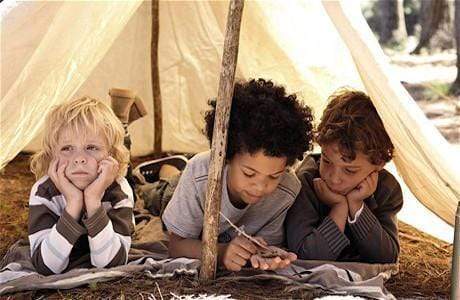
bell tent
Camping Games For Kids That May Buy You 10 Minutes Peace!
Camping Games For Kids That May Buy You 10 Minutes Peace!
Great ideas of before and after dark games to play with the kids whilst camping.

